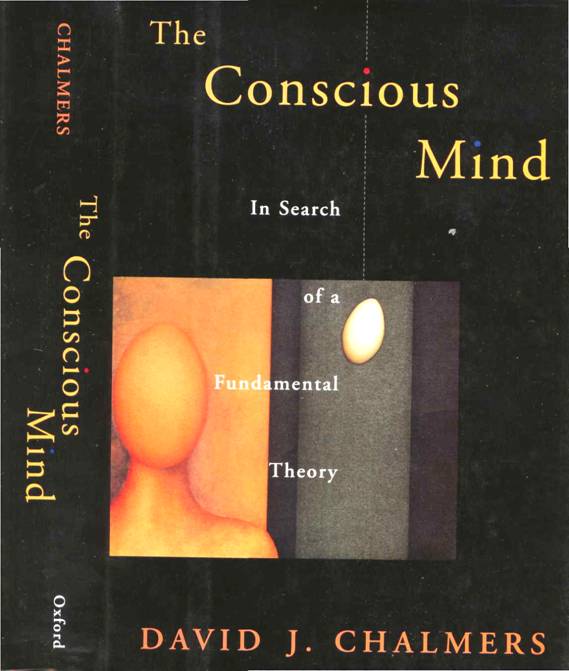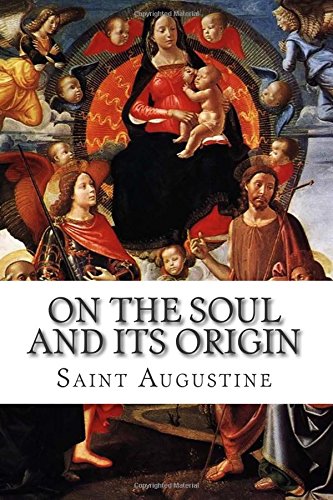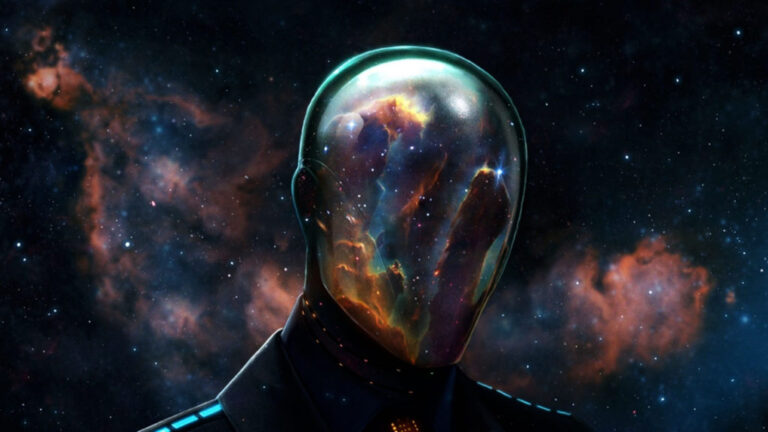In the Harry Potter series, the Dementors drain the body of its soul. But what is the soul and how did we get one? Or are we one? One day I asked my cobbler, “How is your soul?” and he said “You mean my sole”? We got a good laugh. But how can we measure how good our souls are? What way can you measure a sole that you cannot measure a soul with? The sole is tangible, extended into space, while a soul is intangible, not extended into space. So then how does one understand it. Well before we can do that, we need to ask what is the origin of the soul?
Plato tells is that there are three types of souls, Gold, Silver and Bronze. Most of this is done to keep the people in line with his “noble lie”. But that is for a different story. But how did we get the soul in the first place?
The Book of Genesis tells us that “the Lord God formed man from the dust of the ground, and breathed into his nostrils the breath of life, and man became a living soul” (Genesis 2:7).
Descartes argued that the soul “cannot be derived in any way from the potentiality of matter, but must be specially created.”[1]
In Christian theology (which was the background for Descartes’ system of thought) there are two main views on the origins of the soul.
Traducianism and Creationism (not to be confused with the Young Earth debate on evolution).
Creationism regarding the soul is the view that God directly creates the soul out of nothing or ex nihilo at a certain point between conception and birth for each and every human in history. Or that God creates the human soul anew. This view has some major problems that will become clear below.
However, Aquinas in his Summa Contra Gentiles, 2. 86-9 did accept this view claiming that nothing spiritual can come from something physical.[2] ‘
Augustine writes on this in his On the Soul and its Origin in Book II Chap 56,
Modern dualists also embrace Creationism.
Neuroscientist John Eccles for example wrote
“Since materialist solutions fail to account for our experienced uniqueness, I am constrained to attribute the uniqueness of the Self or Soul to a supernatural spiritual creation. To give the explanation in theological terms: each Soul is a divine creation which is implanted into the growing fetus at some time between conception and birth.”[3]
Richard Swinburne and William Hasker also accepted Creationism, however they believes this happens when the brain reaches a high level of complexity:[4]
The other view, Traducianism assert that bodies by natural processes produce souls from genetic material without any need for special intervention by God.
Augustine is ambivalent between Creationism and Traducianism. (See Williams op. cit. pp. 367 ff.) Aquinas argue that this even applies to animal souls. [5]
Traducianism not necessarily what is called Generationism although it can be confused with it. Generationism is the view that in some mysterious way, a part of the souls of the parents is passed down to the new infant. Traducianism is a type of materialistic view that the origin of the soul is in organic processes themselves.[6]
Traducianism appears to be the view that makes the most sense to me in light of current cloning and eugenics and a serious reading of the Scripture.
I suggest that it is more coherent to believe that the spiritual/mental soul emerges from the physical to create a completely new substance. This is what David Chalmers called the “hard problem,” He wrote about it in his book The Conscious Mind.
Theologically speaking (Descartes and Locke were Christians, and it was Locke who wrote “The Reasonableness of Chris tianity”.
tianity”.
Some may argue that Genesis 2:7 and Psalm 139 teach Creationism. I disagree. This is a problem because if we take this text literally that the souls of all people come into the body (directly from God) we must take the text literally that the body of all people is also formed directly by God from the dust, which we know is not true–since He created that body directly only for the first family. In the same way, why can’t the creation of Adam be an exceptional case because he had no parents (save a spiritual father)? Also, in the creation of Eve, she was from Adam; equal to him in essence (Gen 1:26-28, 2:23).
Why can’t we argue that God creates the body and soul indirectly in the rest of creation through procreation and some form of evolution? (This is not the same Darwinianism: undirected evolution process in naturalism).
Creationism, has the following problems, because if it was true:
- Since each subsequence son and daughter of Adam and Eve are born with a sin nature, we have to account for God creating original sin in each new soul. And the Scriptures say that He is not the author of sin (Hebrews 4:15).
- It leaves us with a God-in-the-Gaps fallacy or “God did it,” that the early theologians called on to explain anything they could not. Of course God did it! The question is how or what mechanism did he use?
- It leaves us with a God waiting “on call” (W. Hasker, The Emergent Self [Ithaca, New York: Cornell University Press, 1999], 153) to create as many souls as we wish with the mass cloning that private organizations are going to be doing for stem cell research among others.
- If for example Starfish are conscious, and if consciousness is a soul—when it is cut in five parts it produces five more starfish—does that mean God directly gives each part a soul? This seems to be absurd
In favour of Traducianism, we can say that God rested from all his work (Gen. 2:2), in the sense that he stopped creating new species, and let them create themselves through procreation, mutation and spontaneous creation. And that God allowed the new substance, the soul, to emerge from the complex body instead of creating a new one each every time for the higher animals.
And would not Traducianism fit better with the passage that “Adam . . . begat a son in his own likeness, after his image” (Gen 5:3) and that every beast came “after its kind” in Gen. 1:12, 21, 25? The only times in Scripture were it seems God directly creates something in man is when man is born again as in John 1:13.
If Traducianism is true it leaves us with a mystery of how consciousness or the soul can emerge from the body. But I think that Creationism has many more ambiguities and discrepancies.
Anyway, it is great to know we are much more than our bodies, especially when we look in the mirror on a bad day!
For more detailed analysis see the following:
http://www.dtl.org/apologetics/article/soul.htm
http://www.britannica.com/topic/soul-religion-and-philosophy
http://www.reasons.org/articles/the-origin-of-the-human-soul-part-2-of-4
http://embracedbytruth.com/Man/Nature%20of%20Man/Origin%20of%20the%20Soul.htm
Endnotes
[1] The Philosophical Writing of Descartes, Vol. I trans. by J. Cottingham, R. Stoothoff and D. Murdoch (Cambridge: Cambridge University Press, 1985), 141.
[2] St. T. Aquinas, Contra gentiles II, c 86; Sum. Theologica,. I:90:1-4.
[3] J. Eccles, Evolution of the Brain: Creation of the Self (London: Routledge, 1989), 237.
[4] Swinburne mentioned to me in conversation that he accepts the emergent view of the soul, but in light of the work in his book The Evolution of the Soul it appears this emergence is not naturally but supernaturally motivated.
[5] R. Swinburne , The Evolution of the Soul, Revised ed. (Oxford: Oxford University Press, 1997), 199.
[6] “Creationism,” The Concise Oxford Dictionary of World Religions, Ed. J. Bowker, (Oxford: Oxford University Press, 2000).






Hi Khaldoun,
I agree with you that the creationist view of the soul is problematic. But given that, I am struggling to understand the distinction between the Traducianist view of the soul and the mind. To refer to my earlier posts on the subject, I don’t see what philosophical work the soul is doing here.
I am mostly sympathetic to a non-reductive physicalist viewpoint, so I believe that the brain gives rise to the mind but that they are not identical. In this sense I am a property dualist (something that Moreland rejects as a distinct position as per our last discussion). So I am with Traducianism as far as consciousness arising (and being distinct) from non-conscious matter.
But again – what is the distinction between the mind and the soul? What necessary properties does the soul possess that the mind does not?
Hello Miles,
I am with you that the Traducianist view is to me more logical.
Referring back to the previous dialogue about four months ago on the topic of the soul.
To me mind monism remains the most attractive. I do not see the reason why one has to complicate things by defining a separate entity (as per property dualism), namely the conscious mind, instead of defining consciousness as the aggregate of the processes of a complex biological nerve centre, the brain, interfaced with sensations of the body.
As I posed in my last post on the topic of the soul, a conscious mind can logically give rise to a soul (as per the Traducianist view, under the following circumstances: –
1. A transcendent Ultimate Cause to all physical realities (for argument sake the theistic God) exists, and
2. The conscious being (biological or AI) is posing the question “Does God exist?”
A logical consequence of the pre-conditions of the existence of God would be that the soul can be immortal, whereas the mind would cease to exist when the biological or AI being stops working. In my mind, defining the soul only makes sense under the assumption that God exists.
Referring back to the previous post, “004: Science vs God– Are we all here by Chance?”. In my mind, God, if God exists, has created the fundamental parameters of all realities such that it is possible for matter to appear out of nothing, and ultimately complex beings with consciousness, who have the potential to “discover” the Ultimate Cause. In my view, if God exists, God left freedom to the physical world, hence it is not a guarantee that matter will appear but plausible, in the same way as God gave freedom to conscious beings to want to discover him or explain reality without God.
The logical goal of all theistic religions is therefore to aid people to “discover” God.
It appears that I am a monist (for mind and brain) and a property dualist (for mind and soul).
Piet
Good points. True freedom is impossible on a materialistic point of view. The soul makes it possible to be free because the soul is not linked to and caudally dependent upon material naturalistic processes although it may originate from a combination of those.
But then surely you owe an explanation of how the soul can both be truly free and be causally dependent upon processes that do not allow for freedom.
But I never said the soul was “natural” or causally dependent in the same way the body is. It is of a different category than the body. it is not physical. But it is real. Thus physicalism or naturalism is false. the soul is not linked to and caudally dependent upon material naturalistic processe
Hi Piet,
“I do not see the reason why one has to complicate things by defining a separate entity (as per property dualism)”
Property dualism does not define a separate entity – that’s the whole point. Property dualism maintains that there is a single entity with two sets of properties of differing kinds. So in the case of the mind, there is a single physical entity that possesses both physical and mental properties.
If you just want to say that the conscious mind is the aggregate of physical processes, then you need to explain the problem of qualia. If it was all just physical then (for example) the vibration of molecules is identical to warmth, which rather seems to be missing something important.
Hello Miles,
I admit that I have not worded my thoughts about the property dualism very precisely.
I maintain that property dualism in the mind with distinct physical and mental properties is an unnecessary complication in a (purely) physical reality.
My reasoning remains as follows:-
1) If one accepts that there is no reality outside of the physical reality. (For the purpose of the religious case, no transcendent, simple and distinct entity, God, who is the Ultimate Cause to all realities.)
2) Then, in my mind, all conscious beings (humans, animals, extra-terrestrials and even AI machines) who live or operate in it are pure and solely physical including their mental processes (assuming biochemical processes leading to electric waves leading to information and sensations in the mind or in their hardware).
3. If one were to perfectly describe and enumerate all chemical and electrical states in the brain when someone experiences a sensation or consciously thinks an idea then it could be reduced to such processes.
I am not claiming that one can in practice achieve this full and total definition as in point 3, hence it may be practically impossible to fully reduce and describe the processes. As mental processes are wave-like system, maybe in yonder years a consciousness exclusion principle (similar to or based upon Heisenberg’s in physics) along these lines:-
“The more precisely the physical processes of a wave like mental conscious state are know the less conscious the state is”.
To conclude, in my mind, monism in a pure physical reality remains the most simple explanation of mental processes.
The above reasoning also applies to your challenge about qualia.
If a personal mental experience (such as seeing a certain colour) could be fully described in its mental processes and fully described to a person, who has not experienced this colour yet, then the person who be able to mentally experience it without sensory experience. In my mind therefore a qualia (like seeing a colour) is not a distinct property of the mind but rather a term to address a (currently) impossible characterisation in reduced physical processes.
On the other hand, if a transcendent idea, such as God exists, then a direct experience by a physical being of God would lead would to a Qualia because the physical cannot contain something that is non-physical. Such Qualia would be or be part of the Soul. This leads me back to my position that I prefer mind monism and Soul dualism and that defining a Soul only makes sense under the assumption that the transcendent (assuming God) exists (of which I remain agnostic).
Hey Piet,
I follow your reasoning but it differs significantly from mine – I think we’re at an impasse as we just don’t agree on some fundamental things.
I don’t accept that all that exists is physical. I think the only way we can explain a large chunk of the world (especially in phenomenology and ethics) is by appeal to non-natural (so non-physical) properties. I recognize that this has a high ontological cost, but I do believe that there are certain properties that exist and that are logically inaccessible to science (since science can only deal with the physical/natural).
Given that, I am happy to use non-natural properties in inferences to the best explanation. I reject the idea that you could fully describe color to someone without them having the sensory experience of it (so I take it you reject Mary the Color Scientist; I used to, but I have now accepted it).
I expect your proposition to me on this view would be that we can have direct access to non-natural properties via the soul. This would have to imply that “divine” objects such as God are over and above other “strange” objects and concepts such as numbers and colors, which we seem to be able to experience via the mind. Logically I concede that you could make that hold (actually I might try sketching that out a bit more formally at some point – it’s an interesting idea). But in any case, it’s not enough. I still don’t deny that God or gods are logically possible. The question is if they are metaphysically possible, and still haven’t seen any argument in this direction that doesn’t beg the question.
Hello Miles,
As you can guess I stand no further than you in understanding what is “being”, objective, and “strange” objects. Many thanks for your response because it helps me to think a bit deeper.
I understand your position. I admit that out of convenience and to be able to order my mind I have avoided a deeper study of Existentialism, Phenomenology, etc.
Ultimately my intuition remains that in the physical world nothing is objective and everything is a mere human perception. I therefore have no need to make a distinction between
1) the human perception of a galaxy or a mountain,
2) the human perception of an atom or an electron (already known to be probabilistic)
3) the human measurement of red (defined by humankind as an electromagnetic radiation (can we be sure of humankind’s current definition of electromagnetism? I do not think so) with a wavelength between 620-740 nanometers (Can we be sure of our measurement?), ,
4) a particular human person’ s perception of the colour red,
5) human and animal mental processes, and
6) formalised and non formalised human ethics, morality, etc.
In my mind all are mere human (temporary) experiences (some formalised and some personal). Therefore if humankind were to disappear from the surface of the earth the physical world as we know it would no longer exist. I have not studied Heidegger in detail but I agree that Being or Existence always seems to be temporarily and always in relationship with a specific being’s subjective circumstances and interfaces.
Is there an Ultimate Cause (God) to this human perception which we call the physical world? This is logically possible and, if there is a God, then we might have the possibility to experience this non-physical God via our Soul even in our current, non-objective, temporal state of being. One might be able to experience God but trying to describe God is, in my mind, futile. God remains also to me a pure logical concept.
My problem is that I have neither the intelligence nor the time to even start formalising my thoughts, but I seem not able to stop trying.
Hello Myles
I refer to a metaphor the JP uses. The soul is the dresser and the mind is just one drawer in that dresser.
The sesations are another property etc.
So the mind (the cognitive or reasoning part) is only one of many properties of being human.
See http://www.jpmoreland.com/wp-content/uploads/2010/11/JPT-Restoring-the-Substance…Psych.pdf
Does that help ?
No, that analogy doesn’t help – it almost seems like a category mistake. It is the faculties of the mind that are described by the drawers (cognitive processes, connotative processes, qualia etc.) The mind is the set of these faculties. Compare with the classic example where you take me on a tour of all of the buildings in Oxford then I say “great – now can you show me the university?” The mind is the totality of these faculties (drawers), and the mind is the dresser that contains the drawers. The soul would have to be something over and above the dresser – maybe you could say something like the soul is the space the dresser occupies?
The biggest problem with this analogy is that (as I noted previously) Moreland seems to (inadvertently?) concede that the soul has at least some physical description as it cannot see without the physical faculty of sight. So this line of thinking just seems to cash out in the mind and soul being identical.